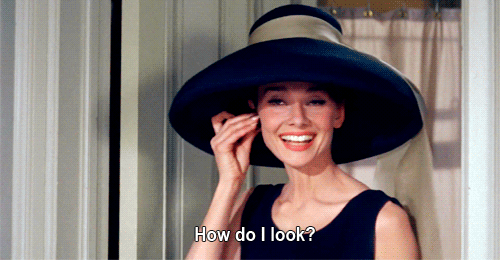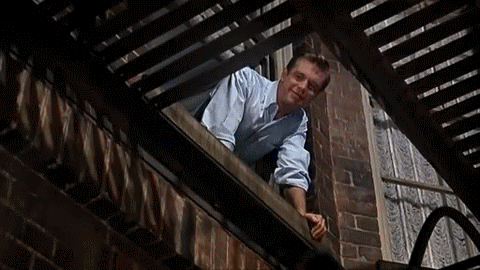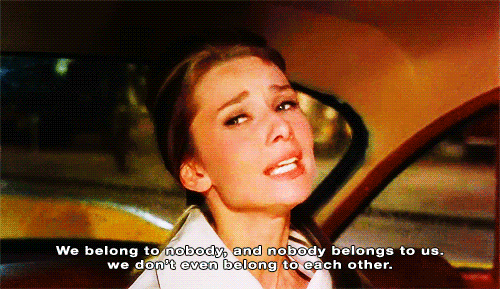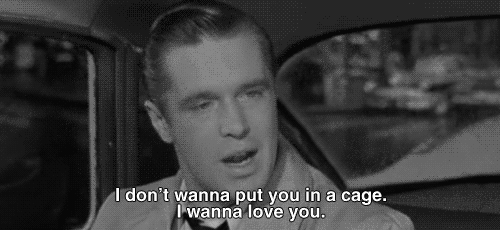This may be the second time in my life that I’ve been tricked into thinking a movie is about breakfast when it’s really not. I mean… at least this time a character actually does EAT breakfast, and to give the movie’s credit it IS at Tiffany’s.

I guess I don’t know why I thought this was some weird movie where Audrey Hepburn throws elaborate breakfast parties, and I assumed her character’s name was Tiffany because I know nothing about jewelry.

Instead I got to see an amazing love story between Holly Golightly (played by Audrey Hepburn) and Paul Varjak (played by George Peppard).

Holly Golightly is the eccentric socialite that embodies New York City in all of its classiness, elegance, and uncontainable energy. She regularly throws parties, knows all of New York’s richest men, and makes $100 a week by unknowingly exchanging coded information between an incarcerated mobster and his lawyer (which I’m assuming in 1961 is enough to afford a nice one bedroom apartment in Manhattan).

But Holly is not all that she seems, and the film gives off the idea that Paul is introduced as a means of rescuing her from her past and her own self-destructive future. I loved seeing Audrey as the independent woman, but somewhere along the way, Paul’s love for her becomes the only thing that’s going to save her from herself, and I don’t know how I feel about that.

I mean he REALLY loves her.

And the more Holly begins to be consumed by her past and her obsession with acquiring a rich husband, the more Paul becomes the “male protagonist” destined to save the damsel in distress. For example.

I had seen this gif here a million times, and I always thought, “Cool, what a nice feminist speech about how women are not objects to be owned by the men that love them.”

But Paul does rescue her from herself, and he does prove that her belonging to him is the best thing for her, because it means she will be loved and respected. It’s a weird dichotomy that I don’t know exactly how to interpret, the line between a woman needing a man’s love to complete her and a woman having the ability to decide that the man who loves and respects her is where she should be because she deserves to be loved and respected.
Either way, Breakfast at Tiffany’s won two Oscars, for Best Score and Best Song. It’s a classic in every sense (despite the negative depiction of women and the offensive caricature of Japanese Americans). Also, Audrey has gone on the record saying it was one of her most challenging roles, since she was an introvert trying to play an extrovert. It’s also important to note that Truman Capote, who wrote the novella on which the film is loosely based, demanded that Marilyn Monroe be cast as Holly Golightly, but Paramount refused.
No comments:
Post a Comment